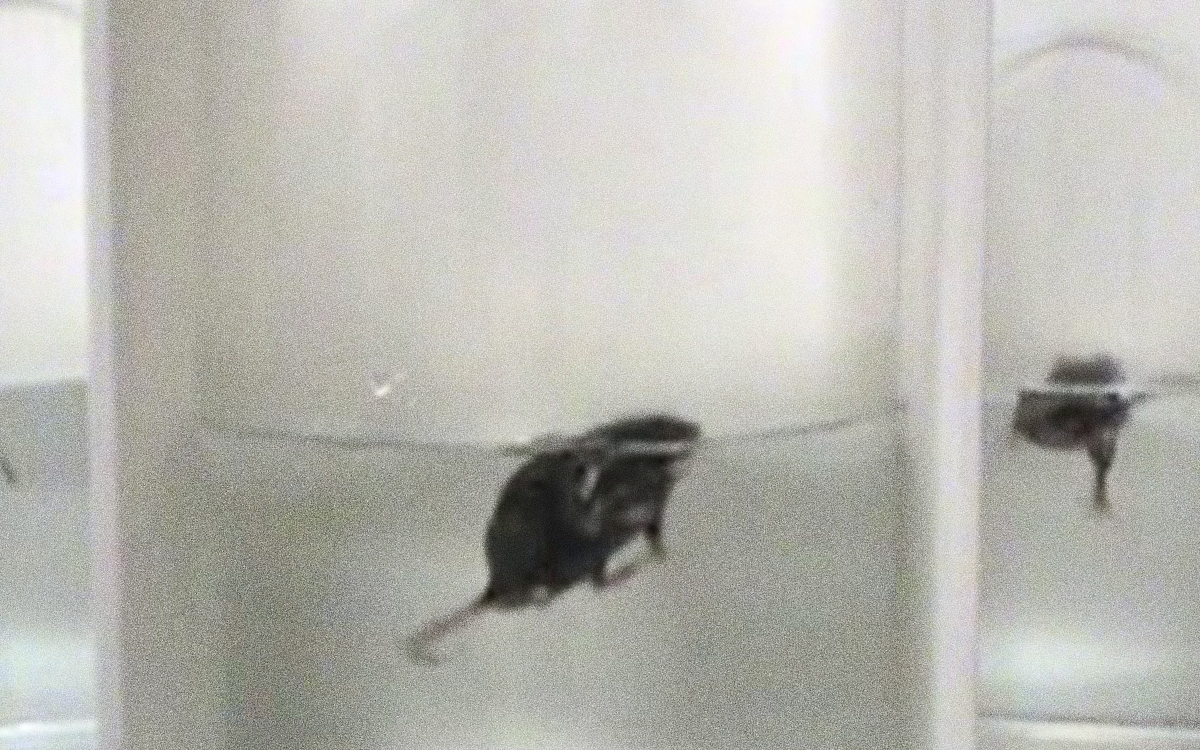
Forced swimming: a long-term battle
Since we discovered that a project involving inflicting electric shocks and forced swimming tests on hundreds of rats had been authorised, we have been trying to find out more, obtain footage of similar projects already carried out in France, and to motivate businesses and French universities to commit against this test. To face resistance from authorities, One Voice is referring to administrative tribunals.
The forced swimming test is one of the most criticised practices in animal testing nowadays. Not only have businesses and universities committed to no longer authorise its use globally for several years, but an Australian parliamentary committee has recently taken an interest in asking for it to be abolished. Closer to home, a British committee on the scientific use of animals has received numerous requests regarding this test. But either way, authorities’ responses clearly lack ambition and imagination.
Authorities and their waffle
In France, authorities are still less receptive. The Ministry of Research has already confirmed the existence of the project that we condemned to the media, all while qualifying it with the usual reassurances of ethical committees following the ‘strictest regulations in the world’: a response void of any content and that you would probably also receive if you wrote to the Ministry.
Not content with having passed the buck, the Ministry continues to authorise projects involving stressful and painful situations for animals, but also the forced swimming test. In November 2022, a project was approved that would subject more than 3000 mice to various stressful procedures in order to make them depressed in different ways. Forced swimming is part of a range of tests destined to assess the value of these depression ‘models’.
We would like more information
Our letter did not only contain an allegation. It also asked the Ministry to provide us with the documents containing the details of the project and on the deliberation by the ethical committee that approved it.
The Ministry has refused to grant our request. We contacted the French Committee for Access to Administrative Documents [Commission d’accès aux documents administratifs (Cada)] who proved us right. But with the Ministry still turning a deaf ear, we had to resort to the Administrative Tribunal – a lengthy and fastidious procedure, but one which will force the administration to provide us with the requested documents.
Forced swimming footage in France
But can these same laws be applied to obtain the footage taken in laboratories by the research teams themselves? While footage of forced swimming is relatively rare on the Internet, a fortiori
when it comes to France, we have asked three university teams to provide us with the videos of forced swimming that they have taken.
The first claimed to have already deleted them, which raises questions about the transparency of the research and open science, important concepts in the 21st century. The second did not bother to reply at first, then said that they too have already deleted the videos from 2012 to 2017. And finally, the third tried to refuse to send us the footage due to… copyright! As though videos of standardised tests would constitute an original approach to the point of it being elevated to intellectual creation rank in the eyes of the law.
Administrative tribunals must make a decision.
Sign to put an end to the forced swimming test
One Voice’s campaign against the forced swimming test:
- Electric shocks and forced swimming in France in 2022 (13/06/2022)
- Forced swimming: footage (17/06/2022)
- Forced swimming: the businesses moving forward and the industry that resists (16/08/2022)
- Forced swimming: other approaches are possible (08/11/2022)
- Forced swimming: a long-term battle
Translated from the French by Joely Justice